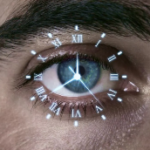5 Tips to Help You Protect Against Macular Degeneration

Macular Degeneration is the leading cause of vision loss, affecting more than 10 million Americans – more than cataracts and glaucoma combined. Seniors are at heightened risk for age-related macular degeneration (AMD), the leading cause of blindness among older Americans. The disease damages central vision, limiting a person’s ability to read, write and recognize faces.
“There is currently no cure for macular degeneration, but there are things you can do to reduce your risk and possibly slow the progression once you’ve been diagnosed. It’s important to pursue lifestyle changes like eating healthy, exercise, quit smoking, and protecting your eyes from ultraviolet light”
David Rabady, M.D., a Retina Specialist at Ophthalmic Consultants of the Capital Region
Here are a few tips to help you protect against macular degeneration:
Eat healthy
A study published in the August 2001 issue of the Archives of Ophthalmology suggests that junk food may be bad for your eyesight. Fat-filled snack foods may heighten the risk of developing advanced age-related macular degeneration (AMD). Eat a diet rich in omega-3s and low in cholesterol and saturated fat. Studies show people who had a reduced risk of AMD had diets rich in omega-3 fatty acids, such as fish. Studies show increased AMD risk in individuals who had a higher intake of saturated fats and cholesterol.
Eye vitamins can also help. The current recommended supplements for Age-related Macular Degeneration include a combination of antioxidants, carotenoids, and omega-3 fatty acids. We carry PRN scientifically formulated Macular Vitamin for our patients with macular degeneration.
Quit smoking
Numerous studies show smoking increases the risk of developing AMD, and the speed at which it progresses. Pack-a-day-or-more smokers double their likelihood of developing the most common form of blindness among the elderly. The more people smoke and the longer they smoke, the higher the risk of developing macular degeneration, according to two studies in the October 9, 1996 issue of The Journal of the American Medical Association. And According to a report in the British Medical Journal from public health experts at the University of Manchester, smokers are up to four times more likely than non-smokers to develop age-related macular degeneration (AMD).
 Exercise regularly
Exercise regularly
Make an effort to walk half an hour every day, or participate in more strenuous activities if possible, like yoga, aerobic activities, or sports. Many studies show getting regular exercise can benefit your eyes. One study, published in the British Journal of Ophthalmology, showed that one in four had an active lifestyle and engaged in physical activity strenuous enough to work up a sweat three or more times per week. reduced the risk of developing wet AMD, the more serious form of the disease, by 70 percent.
Wear sunglasses with UV protection
Harmful Effects of Ultra-violet and Blue Light Ultra-violet light is that portion of the spectrum of invisible light below 286nm to 400nm, and is generally understood to be harmful to the eye, possibly leading to cataracts and other eye diseases such as age-related macular degeneration (AMD).
Make sure to wear UV sunglasses when outside to protect your eyes. We carry a wide-range of UV sunglasses in our optical departments.
Schedule an annual comprehensive eye exam
People with early-stage AMD may not have any obvious symptoms. However, the doctors Ophthalmic Consultants of the Capital Region can detect early signs of eye disease through comprehensive eye exams.
“Ophthalmic Consultants of the Capital Region has the latest technology and equipment to diagnosis AMD. We do have treatments that can slow the progression of Wet AMD, the more serious form of the disease. ”
David Rabady, M.D., a Retina Specialist at Ophthalmic Consultants of the Capital Region
Call any of our locations to schedule an appointment with one of our retinal specialists.


